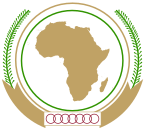EU and Africa to forge research and innovation partnership on food security
 |
| Emblem of the African Union (Photo credit: Wikipedia) |
Brussels, 29 November 2013
The European Union and Africa should work towards a long term, jointly-funded research and innovation partnership to promote food and nutrition security as a first priority, senior officials agreed at talks in Brussels today. The meeting of the EU-Africa High Level Policy Dialogue on science, technology and innovation was called to review cooperation and set new priorities ahead of the EU-Africa Summit 2014. The new partnership could be inspired by the achievements of the successful European and Developing Countries' Clinical Trials Partnership (EDCTP).
European Commission Director-General Robert-Jan Smits said: "Investment in research and innovation creates growth and jobs and is vital in dealing with societal challenges. Enhancing food and nutrition security as well as sustainable agriculture is a challenge common to the EU and Africa, albeit with different dimensions. An increase in EU-Africa cooperation will lead to evidence-based solutions and policy-making and an improved availability, accessibility and utilisation of agricultural products and services."
An expert working group will be established early next year to develop a detailed roadmap concretely outlining the different steps to be taken towards this new partnership. These decisions will support the African Union Year of Agriculture 2014 and the United Nations Food and Agricultural Organization Year of Family Farming 2014.
Both the European Union and African Union are in the process of developing new, long-term research and innovation agendas. The African Union is reforming its Consolidated Plan of Action on Science and Technology into a decadal Strategy on Science, Technology and Innovation (STISA 2024). The EU, as part of its smart, sustainable and inclusive growth agenda, will in January launch Horizon 2020, its biggest ever research and innovation funding programme with a budget of some €79 billion over seven years. Science, technology and innovation cooperation is therefore expected to feature at the next EU-Africa summit.
On 11 December, the European Commission intends to launch the first calls under Horizon 2020 in support of this decision. Focus areas will include sustainably enhancing the agro-food chain, the contribution of family farms and smallholder farms, and water management issues for sustainable agriculture and food and nutrition security. Money will also be set aside to support enhancing EU-Africa cooperation in other areas, including research infrastructures.
Separately, on 25 November DG Research and Innovation hosted in Brussels a conference with stakeholders from the policy, business and research community of 30 different African and European countries to discuss the “Economic Opportunities on Turning Waste into a Resource”. The participants supported the idea of developing a joint European and African research and innovation agenda on waste management, including food waste.
Background
The EU-Africa High Level Policy Dialogue was established at the third Africa-EU Summit in 2010 to establish a framework for enhanced coordination of scientific and technological cooperation. It takes place at the level of senior officials from the EU and AU and their member countries' ministries. The High Level Policy Dialogue seeks to increase coherence in cooperation activities while building on existing efforts and working towards joint initiatives promoting synergy between stakeholders and co-ownership of financing instruments. For this reason, the senior officials have recommended to make the EU-Africa High Level Policy Dialogue the key platform for priority-setting and implementation design in the domain of science, technology and innovation in the future Joint Africa-EU Strategy.
The EDCTP was founded in 2003 to focus the work of the European Commission and several EU Member States, in collaboration with sub-Saharan countries, in developing and testing new medicines for HIV/AIDS, malaria and tuberculosis.




